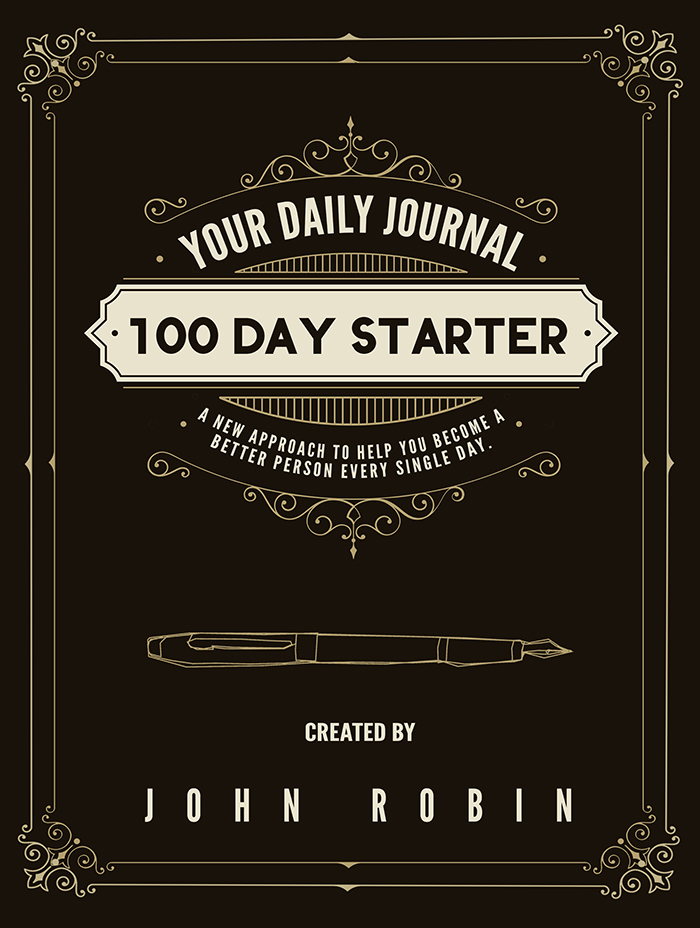Today, Byron Gillan is back on the blog to discuss prologues. Interested in learning more? Read on. Click here for more posts by Byron.
A raven-haired woman flees through the night, pursued by a band of villains…
A terrible calamity befalls a great civilization centuries in the past…
A young man is murdered in the night by an unseen attacker…
These are all examples of – The Prologue. When an author sits down to begin the next (or even their first!) adventure, they are faced with a decision that will affect everything – where to begin? In today’s highly competitive publishing market, there can be a certain amount of pressure to have your novel open with a “punch”; a start filled with enough action or suspense that your readers will just have to keep going. Enter – the prologue. A means of “beginning your story before it actually starts,” and thereby giving your book the flashy opening your audience craves. The problem with this approach? Too many times when I see a prologue, it is all flash and no substance, merely back-story, scene setting, or else something that takes away from the opening of the story.

I’ve made this mistake in my own writing. Until very recently I was laboring under the belief that my first novel “The Children of the Forest” needed a kick-ass prologue of its own to jump-start the story. I felt that the beginning of the book was a bit slow, and I really believed that it needed something more exciting to catch the reader’s attention and pull them immediately into the action. While my heart may have been in the right place, I was essentially forcing my book to start with a false opening, all for the sake of hooking the reader. By relying on this artificial start, I was attempting to hide the flaws in my own writing. It wasn’t an easy realization to make, but it was an important one, and so in the end, I came to the understanding that my prologue did more harm than good, and muddled the opening of the story I was attempting to tell. My precious prologue chapter was unceremoniously cut, the beginning of my novel was reworked, and I think my book is all the stronger.
“By relying on this artificial start, I was attempting to hide the flaws in my own writing.”
This isn’t to imply that prologues are always bad and that you should avoid them at all costs. In fact they can actually be quite good, great even. There are a number of extremely influential and equally successful authors who’ve made good use of them throughout their careers. George R.R. Martin has made it a habit of beginning his “A Song of Ice and Fire” novels with a prologue (usually featuring a hapless POV character not long for the world) as has the late and renowned writer, Robert Jordan (although this fellow is guilty of as many, if not more terrible prologues than good ones, but we’ll get to that in a bit…) whose opening novel in the “Wheel of Time” series features one of the greatest prologues I’ve ever read. Prologues can be incredibly useful tools for beginning your story, used to set up important information or characters that might otherwise be too difficult to introduce in an organic way.
“Prologues can be incredibly useful tools for beginning your story, used to set up important information or characters that might otherwise be too difficult to introduce in an organic way.”
A great prologue is crafted through the combination of many different ingredients – it has to pull the reader into the story immediately, giving them just enough information to leave them wanting more. It has to hook us, usually with the use of a cliffhanger, and finally, it needs to set up the skeleton for the rest of the novel that follows. Going back to Robert Jordan and his “Wheel of Time” series, the first novel “The Eye of the World,” opens with a look far back into the history of Jordan’s world. On the precipice of complete calamity, a mad man wanders the ruins of his home, beset by enemies and haunted by voices filling his head.
“You cannot escape so easily, Dragon. It is not done between us. It will not be done until the end of time.”
The Eye of the World – Robert Jordan
In this very short (Editors note: HA!) opening scene, Jordan establishes the setting, mood, and the stakes of his story. Everything that follows will be built upon this crucial sequence. The concept of rebirth, of the battle of good and evil, of madness coinciding with the magical “power” that permeates Jordan’s mythical world – all of it stems directly from the quick glimpse the audience receives in this fantastically structured and beautifully stylized scene. This single chapter into Jordan’s world is enough to allow the reader to understand the story without beating them over the heads with info-dumping or endless paragraphs of meaningless names and places we’ve yet to grow attached to or care about. Therein lies the secret to success – the audience must be intrigued, not overwhelmed. A good writer has to understand the difference.
“The Pillars of the Earth” from author Ken Follett (while not technically Epic Fantasy, I decided it was no less deserving of mention) is another example of “prologues done right.” The first chapter introduces us to the scene of a hanging. A mysterious character is about to be executed for theft, and a crowd gathers to watch. During the scene the man breaks into song in a queer tongue. Then he is hung, only for a wailing woman to make her way through the crowd towards the judges presiding over the execution. Naming them liars, the strange woman decapitates a rooster and sprays its blood upon the judges before cursing them. She then flees into the woods, and the chapter ends. Who is this strange woman, and what is her connection to the man who we just watched die? Is there power behind her curse, and for what reason did she damn the three judges? The prologue for “Pillars of the Earth” gives us a satisfying look into this world that Ken Follett has constructed, while laying the seeds for much more to come.
“Therein lies the secret to success – the audience must be intrigued, not overwhelmed. A good writer has to understand the difference.”
Now earlier I mentioned Robert Jordan, an author who I’ve never been quite able to pin down as either “wonderfully gifted” or “wonderfully terrible.” When I first started reading his “Wheel of Time” series, I was enthralled by the detail of his writing, the depth of his world-building, and the sheer scope of the story being presented. It wasn’t until the later books in the series that I began to notice an increasing…unevenness with Jordan’s writing. One particular area of glaring concern were his continuing use of exorbitantly-long prologues. By the time the last few books in the “Wheel of Time” series had rolled around, each prologue was damn-near-close to the length of a full novella! These later examples of Jordan’s work were completely overstuffed with characters, events, places, and other things that simply didn’t work for a prologue. There was still (arguably) good writing involved, but what was there was lost in the poor pacing and over-stuffing of ideas, and again this circles back to my earlier point about the purpose of a prologue. It does not serve as your “real chapter one.” Robert Jordan lost sight of this, an arguable sign of his decaying talent as his work progressed. The sloppiness presented by his inability to even begin his novels properly directly correlated with the decline in the overall direction of his series.
So at the end of the day, there’s reasons both for –and against, the use of prologues. They can be powerful tools for engaging your readers and expanding your story, but they can also hamper your work just as much as help it, and a talented author needs to know when to use them, and when to cut them. Hopefully you’ve enjoyed reading through this piece. It’ll be the first in a series, each focusing on a different aspect of writing (specifically geared towards Epic Fantasy, though I’ll try to make this as open as possible for everyone!). Thanks for reading, and sound off with your thoughts in the comments below~
###
 Byron Gillan is an avid reader, recent college graduate, and freelance writer, with multiple publications in various newspapers, magazines, and online publications, including work for the Buffalo News. His first novel, The Children of the Forest, is now in production with the Quill imprint through Inkshares.com.
Byron Gillan is an avid reader, recent college graduate, and freelance writer, with multiple publications in various newspapers, magazines, and online publications, including work for the Buffalo News. His first novel, The Children of the Forest, is now in production with the Quill imprint through Inkshares.com.


Great post, Byron! As a rule I never write a prologue until after the first draft at least. This rule helps me make sure if my story needs a prologue then it really needs a prologue. I use this same principle with editing: if you can cut something out and it doesn’t radically change the story being told, then it’s not needed. So writing without a prologue will create a void in the story if a prologue is needed for that story. I think it’s a good practice for a writer to start where they are certain their story starts (right away, a sense that something is about to go wrong, see Steven James’ “Story Trumps Structure”), then, after getting the whole thing down, it will be a lot clearer whether or not the scope of the story needs something to set it down (this is often the case with multiple point of view narratives where more than one narrator can be identified as a protagonist).